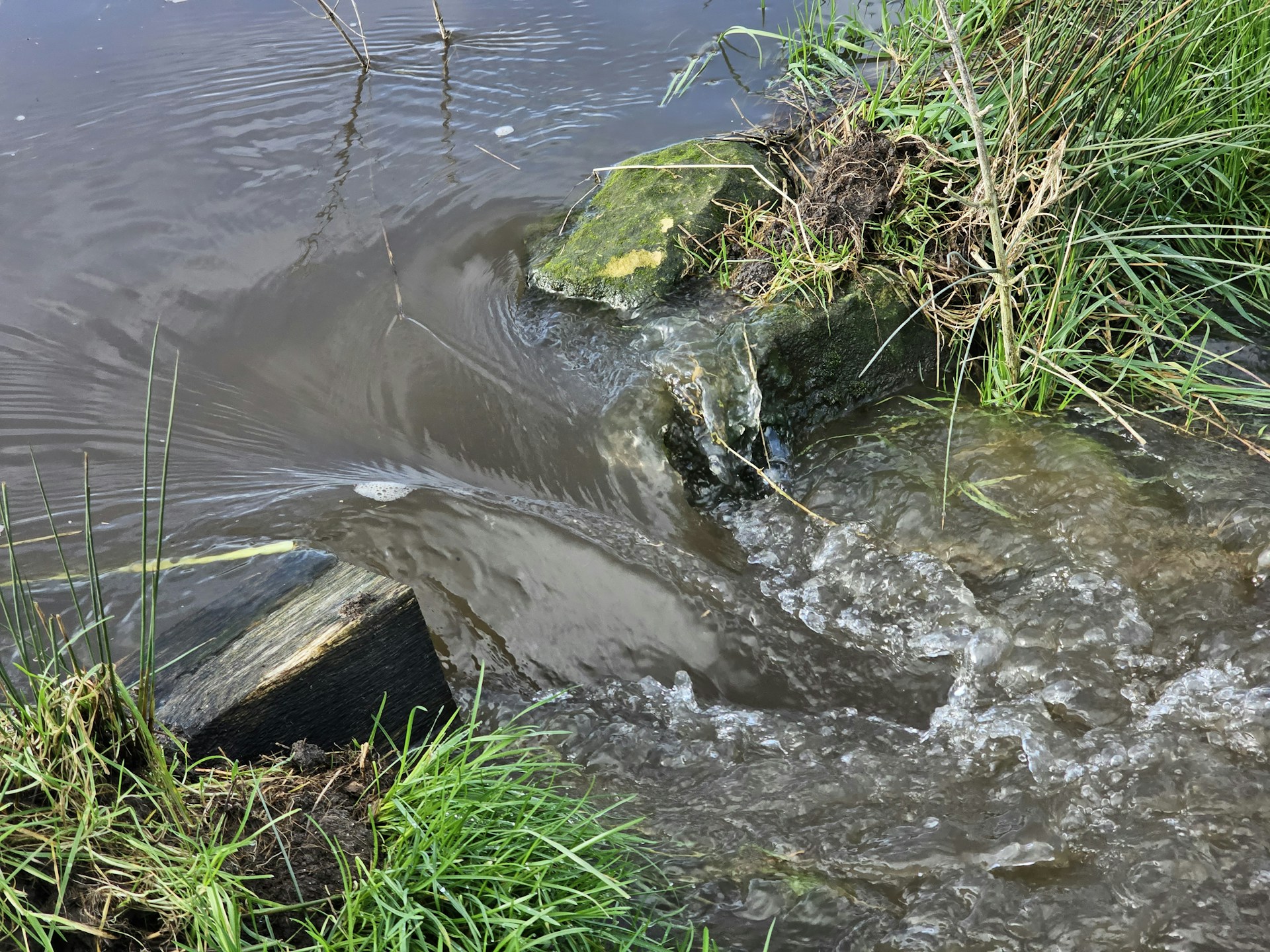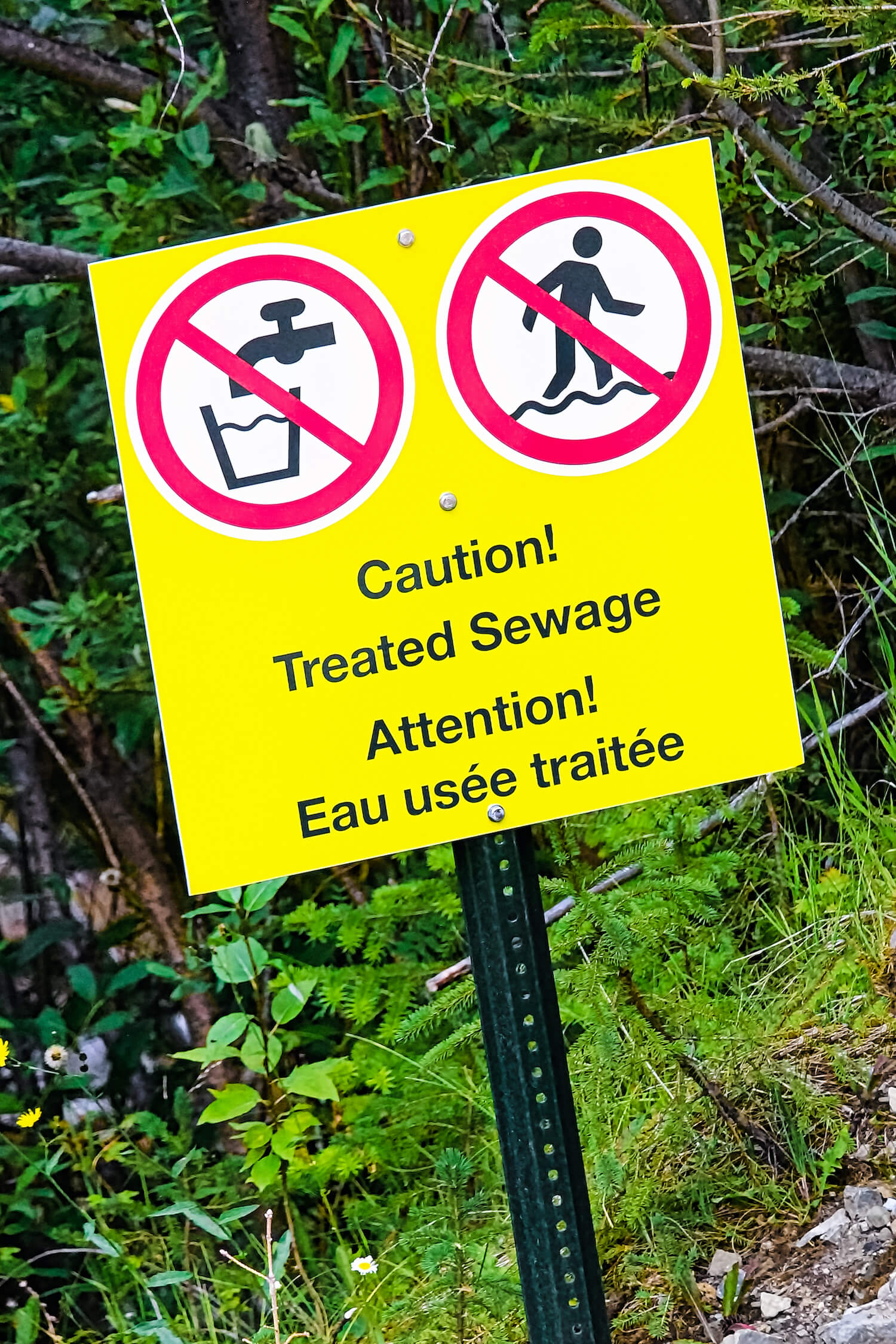Table of Contents
An overflowing sewage treatment system could be hazardous to you and your property with exposure to raw, untreated wastewater, risk of damaging local ecosystems and the environment, plus damage to the structural integrity of your property and potential fines from local authorities.
Here’s why you should avoid running the risk.
What are sewage treatment systems?
Sewage treatment plants are used by properties that are not connected to the main sewer system.
These systems are used to collect, treat and dispose of the sewage safely.
Sewage treatment systems will handle both ‘black water’ and ‘grey water’.
Black water refers to toilet waste, while grey water refers to wastewater from showers, sinks, washing machines, and other sources.
The purpose of sewage treatment plants is to break down waste, remove the harmful bacteria, and produce a clean effluent of treated water.
This process typically takes place through a two stage process that first involves separation, followed by a biological process.
The primary separation process will cause the oils and grease to rise to the top, while the solids settle out as sludge.
The secondary biological process involves bacteria and microbes breaking down the organic matter in either an aeration chamber or a biofilter.
Potential hazards of an overflowing system
Your sewage system is a vital, often overlooked component of your property’s infrastructure.
When functioning correctly, it will quietly and efficiently manage wastewater, ensuring hygiene and environmental safety.
However, when things go wrong – specifically, if your sewage treatment system overflows – the consequences can range from unpleasant to hazardous.
Understanding these risks is the first step in ensuring the longevity and proper operation of your septic system, and ultimately, safeguarding your health and property.
Raw Sewage Exposure
One of the most immediate concerns with a septic overflow is direct exposure to raw sewage.
Untreated wastewater is a breeding ground for a host of harmful microorganisms. Contact with this contaminated material can lead to a variety of illnesses, from uncomfortable gastrointestinal issues to more serious infections.
Protecting yourself, your family and your pets from this direct contact is paramount.
Threat to your Local Environment
Beyond immediate health risks, an overflow poses a significant threat to your local environment.
Your septic system is designed to treat wastewater naturally before it filters back into the ground.
An overflow bypasses this treatment process and untreated effluent can contaminate soil, potentially harming vegetation and impacting the delicate balance of your local ecosystem.
If this contaminated runoff reaches nearby water sources such as a stream, a pond or even groundwater it can have far-reaching negative effects on aquatic life and potentially contaminate drinking water supplies for yourself or your neighbours.
Structural Damages to your Property
The consequences of an overflowing septic system can also extend to the structural integrity of your property.
Persistent saturation from sewage can weaken building foundations, leading to costly and disruptive repairs.
The damp environment created by an overflow can also foster the growth of mould and mildew, further impacting your property’s structure and potentially causing respiratory issues.
And let’s not forget the pervasive and unpleasant odours associated with sewage, which can significantly detract from the enjoyment and value of your property.
Regulatory Breaches and Occurring Fines
Finally, neglecting a septic system overflow can lead to regulatory issues and potential fines.
Local environmental regulations are in place to protect public health and the environment. Failing to maintain your septic system and address overflows promptly can result in unwelcome intervention from authorities and financial penalties.
What to do if your system is overflowing?
A septic system overflow is more than just a messy problem.
It can be a potential health hazard, an environmental concern, a threat to your property or even a possible legal issue.
Proactive maintenance, including regular inspections and timely pumping, is the best way to prevent these risks.
Understanding the potential hazards underscores the importance of proper septic system care and the need for immediate professional attention should an overflow ever occur.
Protecting your investment, your health, and your environment starts with a well-maintained sewage treatment system.
If you need your sewage system emptied, Peachy Services is here to help.
Covering the South East of England, we specialise in the installation, maintenance and emptying of septic tanks, cesspits and sewage treatment plants.
As well as emptying your system, we can advise and carry out any required servicing and maintenance tasks.
Regular sewage system servicing can help to prevent costly damages, both to your wallet and the local environment and waterways.
Our team can provide a tailored servicing plan for your sewage systems to ensure they continue functioning as they are intended to. Contact Peachy Services for all of your liquid waste management requirements.



